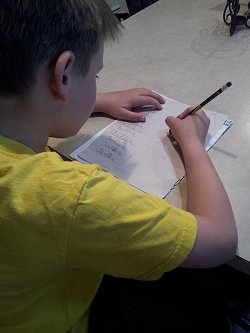Schedule an Initial Consultation
[fill-in online form]
Austin Behavior Associates provides the following types of ABA Services:
Assessments
Assessments include time spent assessing the child, interview with Parent, scoring of standardized assessments, formal write-up, recommendations and 30 minute meeting with Parent to discuss results and programming recommendations.
Re-assessment
Re-assessment typically occurs every 6 months and includes time spent assessing the client, scoring the assessment, documentation of short term goals and a formal write-up (consultation is not included)
Functional Behavior Assessment
Initial and ongoing behavior assessments are conducted to determine if, where and how to intervene as well as to identify the controlling variables for each child’s challenging behavior(s). Typically the child’s behavior is assessed in the home, school and community settings to define the behavior and understand why it is occurring. This is often conducted in conjunction with a skills assessment, but there are situations in which only a behavioral assessment is necessary.
Skills Assessment
Skills assessments are completed every 6 months using the Assessment for Basic Language and Learning Skills-Revised (ABLLS-R), Verbal Behavior- Milestones Assessment and Placement Program (VB-MAPP), Assessment of Functional Living Skills (AFLS) or other appropriate standardized assessment. These assessments are typically completed in the child’s natural environment.
Early Intensive Behavioral Intervention (EIBI)
This is a service specifically tailored to children up to age 5 that need a comprehensive treatment program that focuses on typical development, including motor, cognitive, communication, social/emotional, play skills and self-help skills. Once an assessment is completed, a report will be provided with goals and recommended treatment hours. From there, services will begin where a behavior technician will conduct therapy in the home and community settings to address the goals while supervision occurs frequently by the BCBA. Also, team meetings will occur regularly with the BCBA, behavior technician and parents. Team meetings are conducted in the home on a regular basis to ensure progress and consistency with implementation of the program. Typically, the BCBA collaborates with other professionals, including occupational therapists, speech pathologists, teachers, and childcare providers at the request of the parent. Formal plans can be made to assist with the transition to a school environment at the appropriate time.
 School-Age Programming
School-Age Programming
This is a service specifically tailored to children that are enrolled in school full-time that need a comprehensive treatment program that focuses on typical development, including motor, cognitive, communication, social/emotional, play skills, executive functioning and self-help skills. Once an assessment is completed, a report will be provided with goals and recommended treatment hours. Therapy will be conducted by a behavior technician in the home and community to address these goals, with supervision occurring frequently by the BCBA. Specific goals can be developed exclusively for social skills programming, behavior reduction, functional living skills and support at community activities such as swimming lessons, gymnastics, or in other group learning situations. Team meetings with the BCBA, behavior technicians and parents are conducted in the home on a regular basis to ensure progress and consistency with implementation of the program. Typically, the BCBA collaborates with other professionals, including occupational therapists, speech pathologists, teachers, and childcare providers at the request of the parent. Attendance at IEP meetings, school conferences, and regular observations in the classroom are encouraged. Formal plans can be made to assist with the transition to a school environment at the appropriate time.
School Shadowing
School shadowing is appropriate for children attending a private school. A behavior technician accompanies the child to school to facilitate social interactions with peers, classroom routines and independence. The ultimate goal of a school shadow is to eventually fade out when the child can be independently successful in the room with the classroom teacher facilitating instructions. It is not the goal to have the shadow function as the teacher, but rather to help the child follow through with routines, social behavior and group instructions given by the teacher.
Parent Training
Parent training with Austin Behavior Associates includes training in the application of the principles of ABA in a family-friendly manner with emphasis on teaching strategies that are specifically useful and relevant for the family. In addition to basic ABA principles, training may include various teaching strategies, data collection processes and techniques for the management of challenging behaviors. The goal of this training is to educate and empower the parents and caregivers to understand and utilize basic ABA principles in daily life to ensure consistency for the child.
